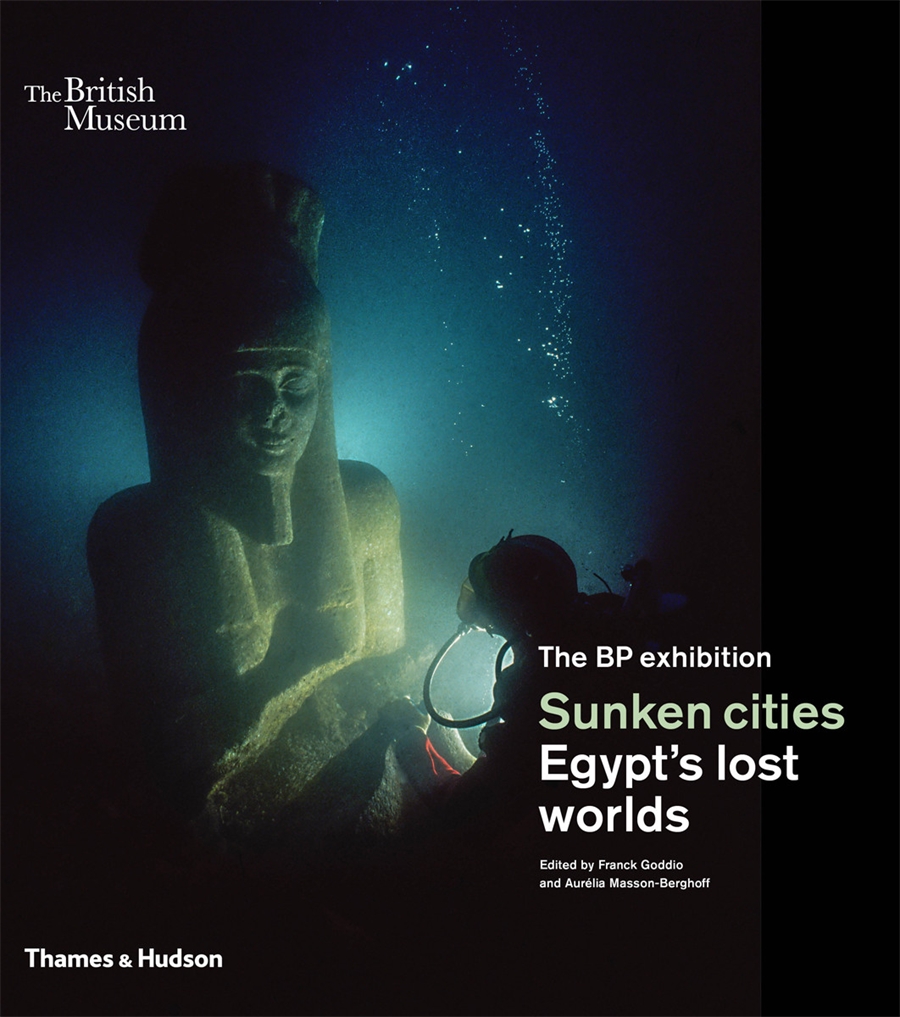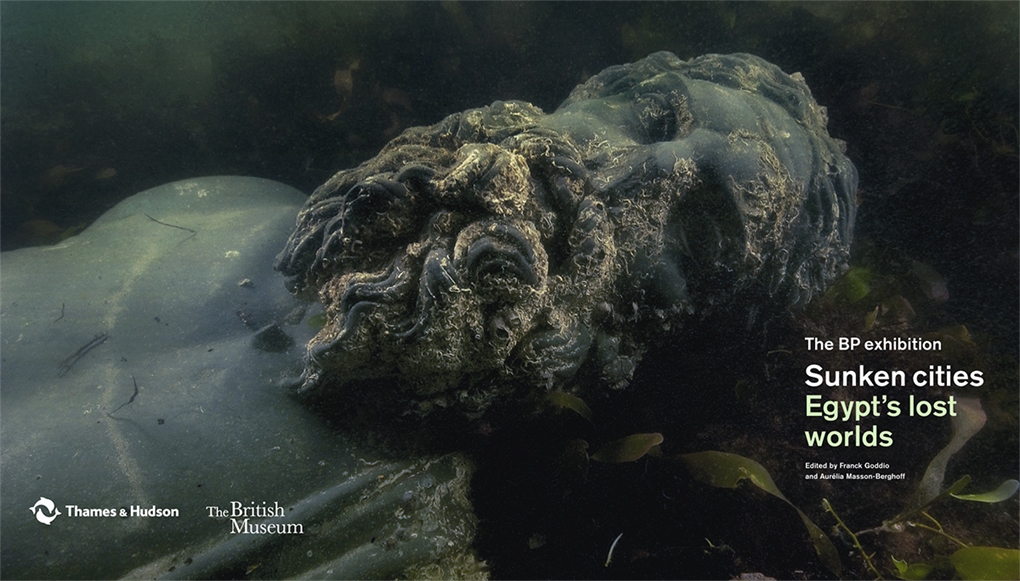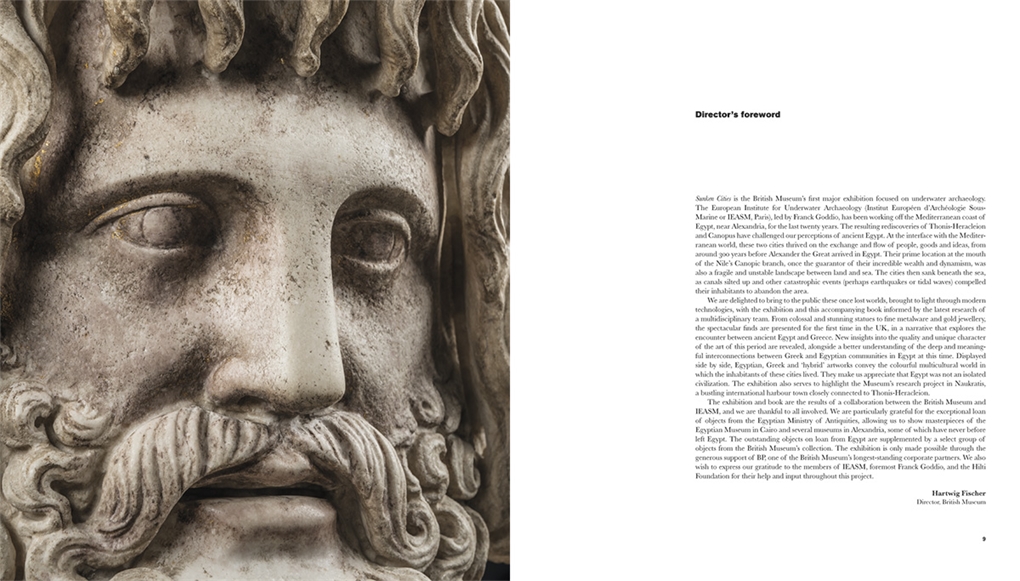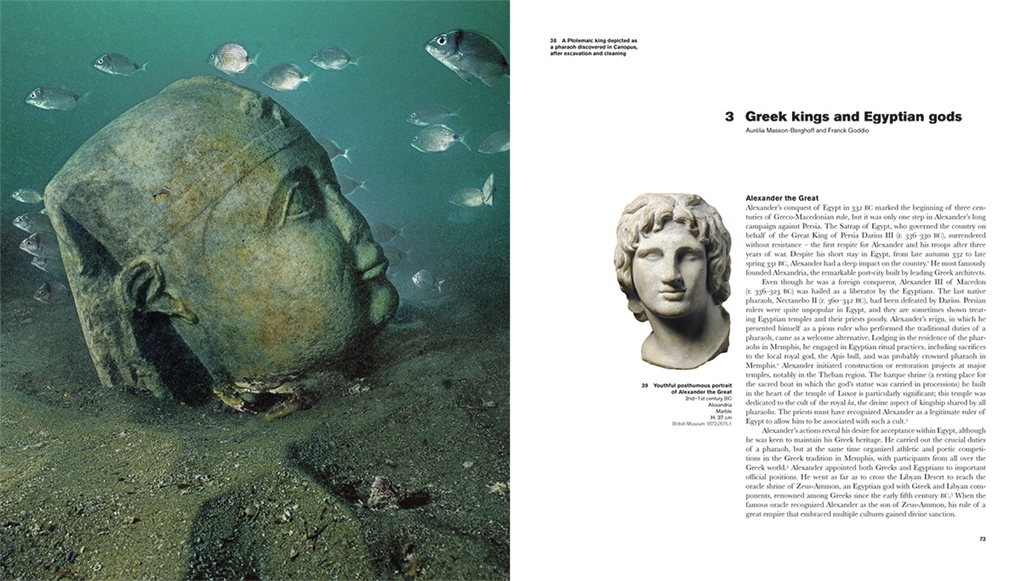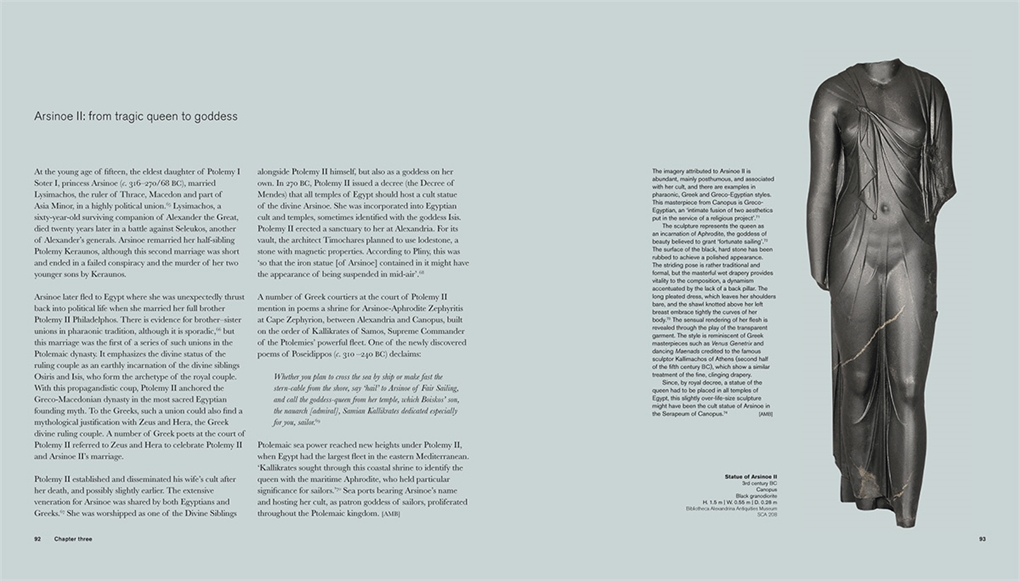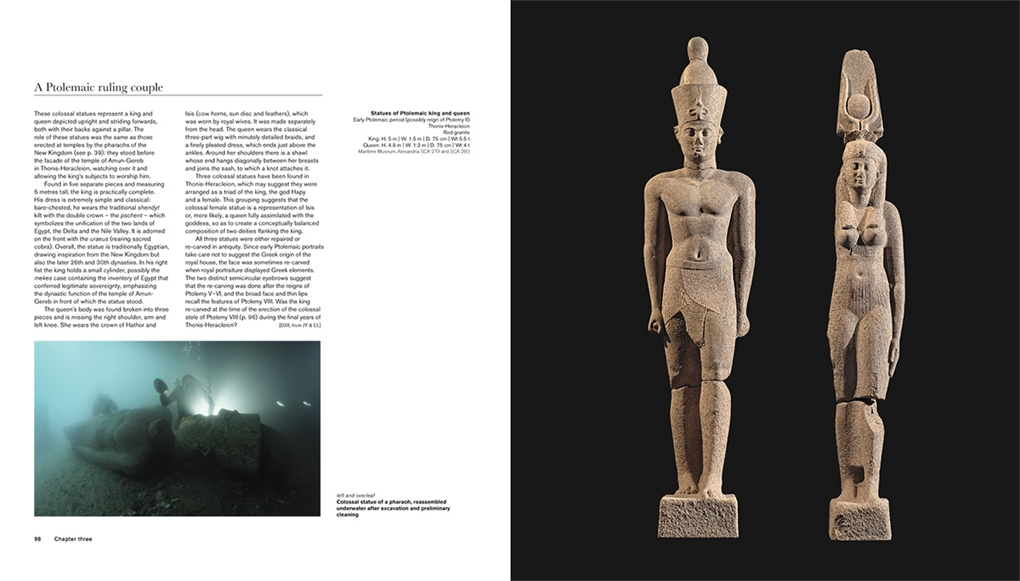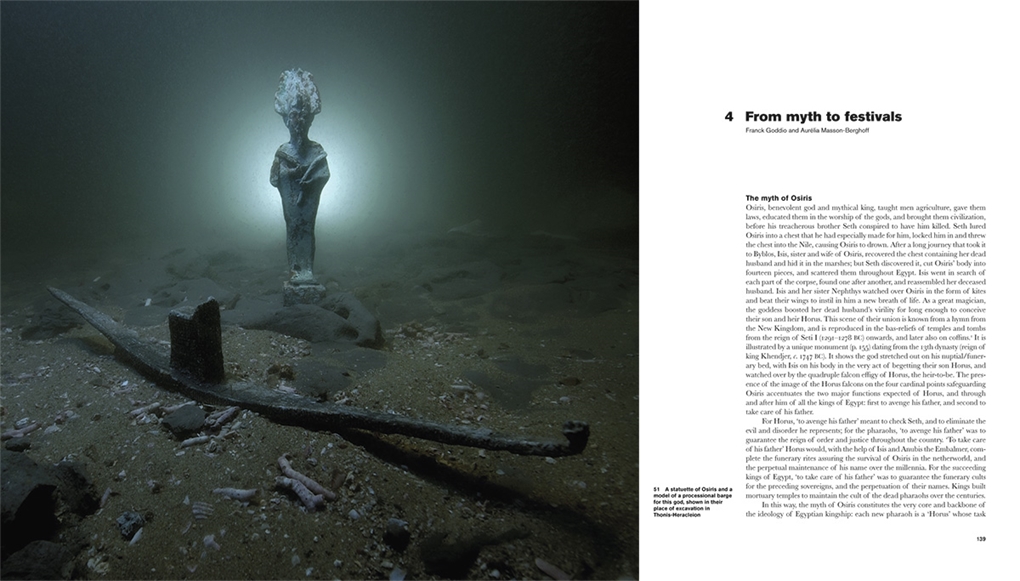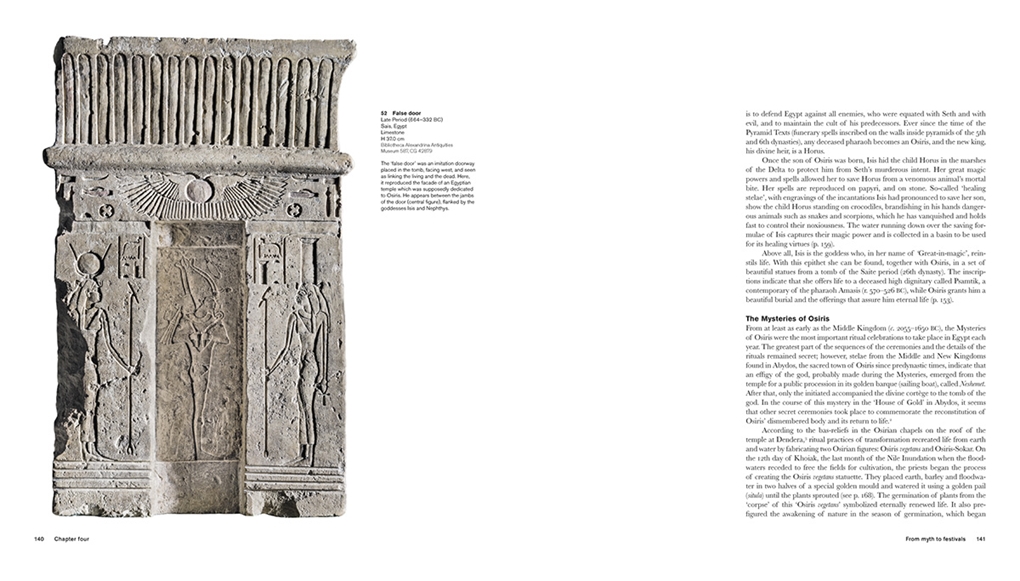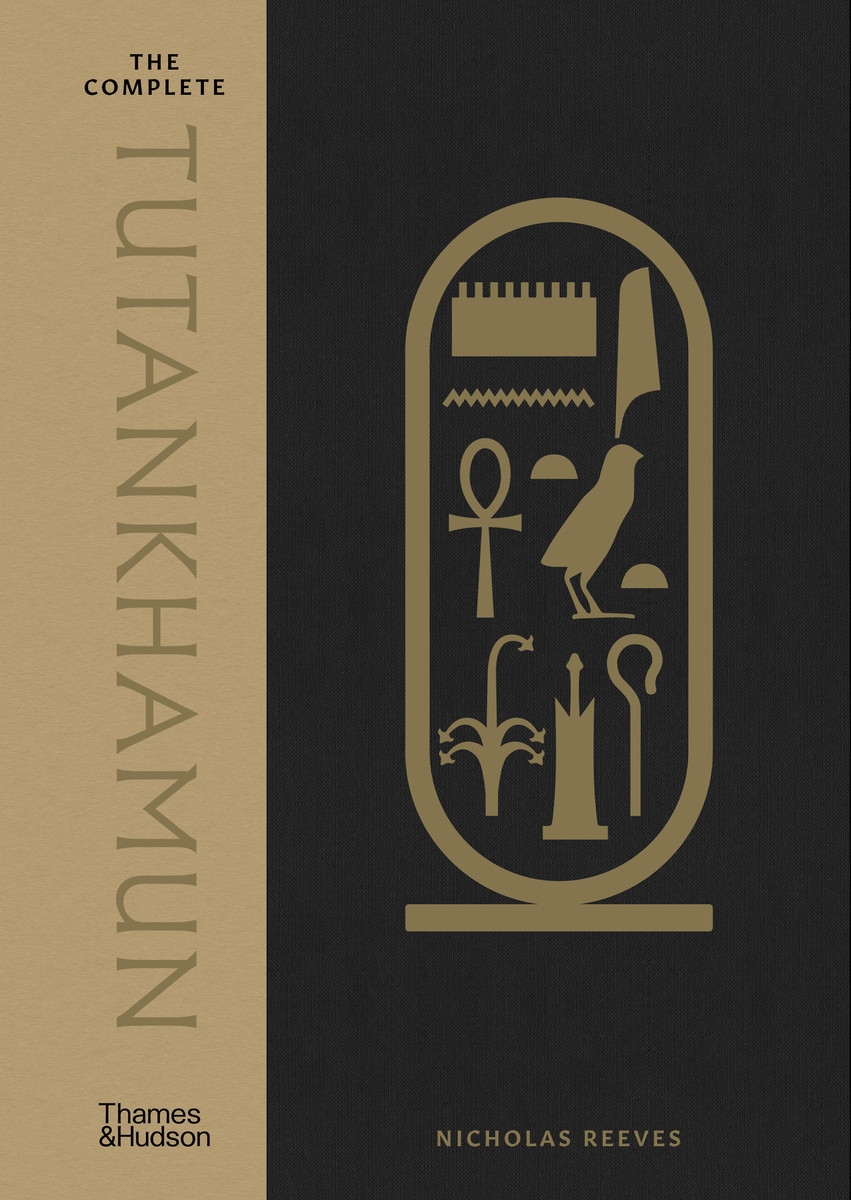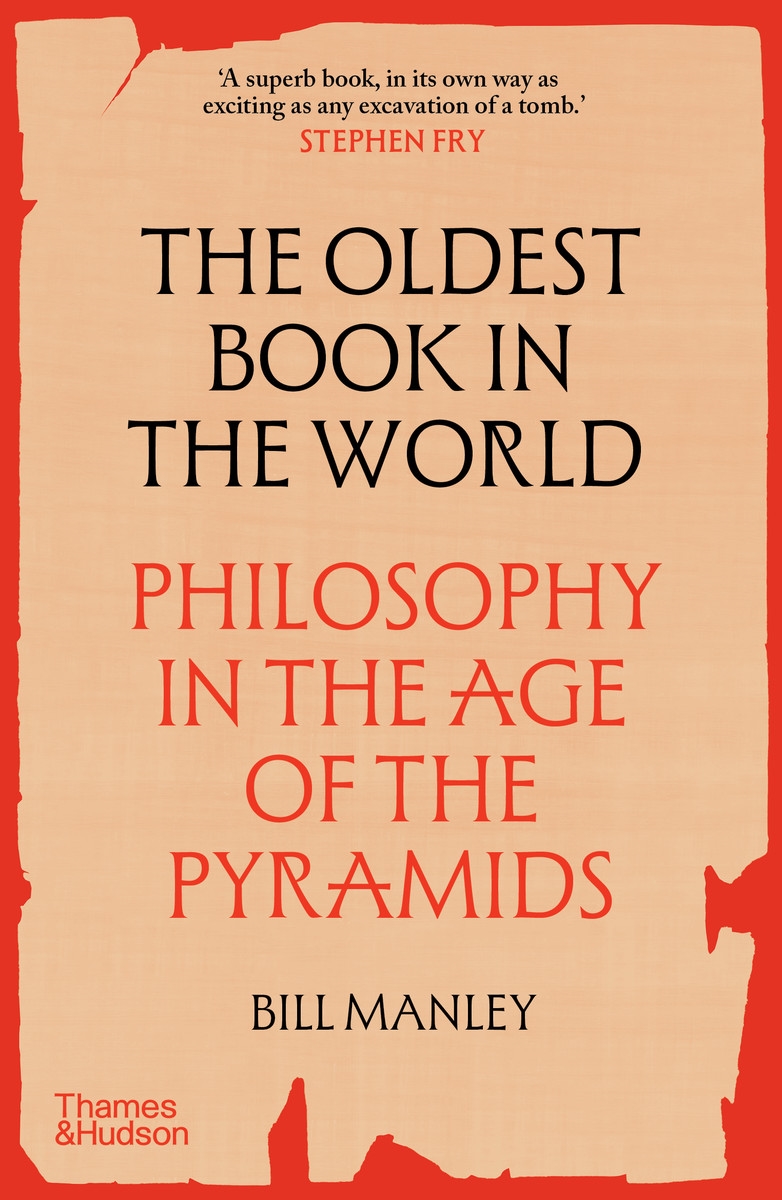Description
Beneath the waters of Abukir Bay, at the edge of the northwestern Nile Delta, lie the submerged remains of once-lost ancient Egyptian cities that sank over 1,200 years ago, but were dramatically rediscovered in the last years of the 20th century. Pioneering underwater excavations, begun in 1999 and still underway, are uncovering an array of ancient buildings and artefacts. Temple ruins and monumental statuary, harbour installations (and no fewer than 69 shipwrecks), exquisite jewellery and delicate ceramics are among the intriguing remains of these cities already lifted from the sea.
Through these extraordinary finds, this book tells the story of how two iconic ancient civilizations, Egypt and Greece, interacted in the late first millennium BC, from the founding of Thonis-Heracleion, Naukratis and Canopus as trading and religious centres to the conquest of Egypt by Alexander the Great, through the ensuing centuries of Ptolemaic (Hellenistic) rule, to the suicide of Cleopatra and the ultimate dominance of Rome. Throughout, Greeks and Egyptians lived alongside one another in these lively cities, sharing their politics, religious beliefs, languages and customs. Greek kings adopted the regalia of the pharaoh; ordinary Greek citizens worshipped in Hellenic sanctuaries next to Egyptian temples; and their ancient gods and mythologies became ever more closely intertwined.
Published to accompany the blockbuster British Museum exhibition showcasing a spectacular collection of objects, this book retells the history and rediscovery of this vibrant and multi-cultural ancient society.
